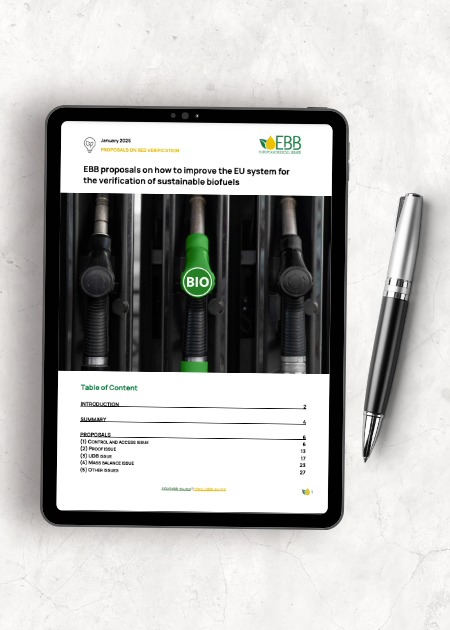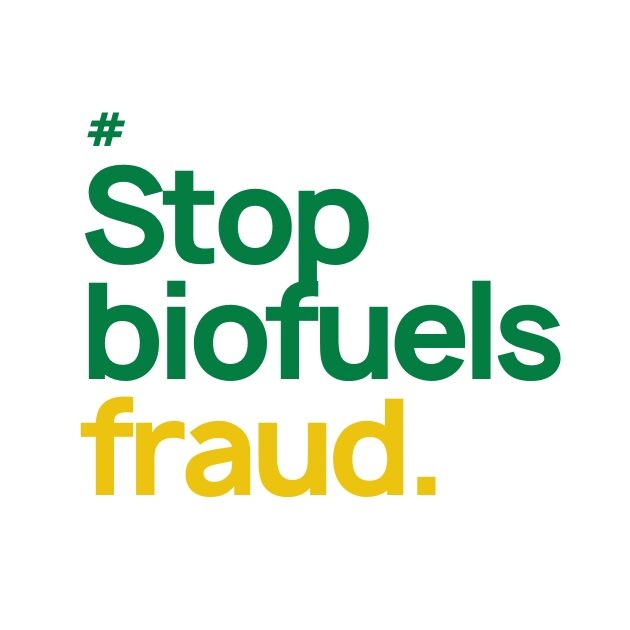Time to act on biofuels fraud:
EBB proposes ambitious reform of RED verification
Read our in-depth proposal to improve the EU system for the verification of sustainable biofuels

The background
In its continued effort to tackle biofuels fraud, the European Biodiesel Board (EBB) has published an elaborate and ambitious proposal revising the rules on sustainable biofuels verification.
The surge of imports from South-East Asia from 2022 onwards, leading to the collapse of the EU market, has raised serious concerns in the industry on the compliance of some imports with the criteria of the Renewable Energy Directive (RED). These suspicions are sustained by the abnormal increase in both biodiesel production and waste feedstocks availability.
Ever since EBB became vocal on the issue, more and more stakeholders have joined the call for action. Members States at the Energy Council meeting on the 30th of May 2024 called on the Commission to develop “strong corrective actions to prevent the entry of fraudulent biofuels on the European market“. A leading environmental NGO in the field of transport jumped on the bandwagon requesting action, and Indonesia and Malaysia are taking measures to prevent tax fraud with exported palm oil waste feedstocks.
Some highlights
Level playing field
Rules that apply to domestic producers, should be enforced just as strictly outside of the EU, for biofuels used on the EU market.
Better reporting
Every producer should report the quantities, capacities and feedstock-use of biofuels produced from raw materials listed in Annex IX , as is already the case in some countries.
Tougher sanctions
We also recommend broadening the number of non-compliance cases and imposing effective sanctions, to compel every part of the value chain to exercise appropriate due diligence.
Union Database for Biofuels (UDB)
We propose to develop the Union Database for Biofuels (UDB) and enhance its features with the inclusion of traders and blenders. For all biofuels imported into the EU a copy of the certificate of origin used for customs clearance should be made available. Additionally, all production facilities should be approved, declaring capacity and expected production.

